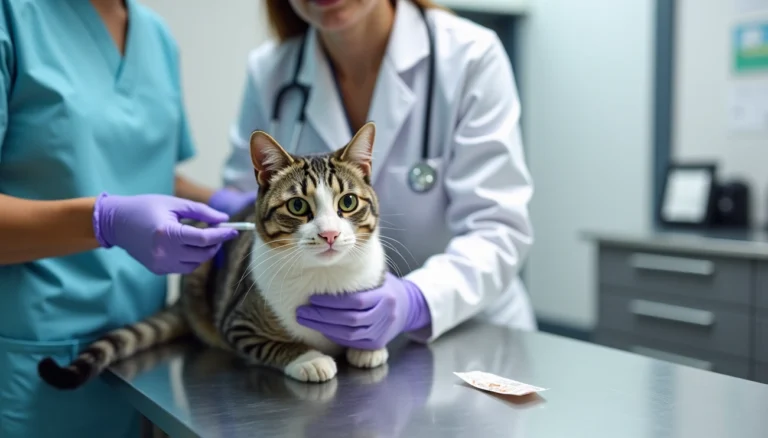How to Stop Dog from Scratching: Complete Guide for Pet Owners
How to Stop Dog from Scratching is a question almost every pet parent asks at some point. Scratching may seem normal — after all, dogs itch just like we do — but when it becomes constant, intense, or starts leaving behind red patches and scabs, it’s a clear signal that something is wrong. This isn’t just about comfort; it’s about your dog’s overall health and happiness.
If you’ve been searching for proven ways to stop your dog’s scratching, you’re not alone. Thousands of owners type this very query into Google and AI chat bots each month, hoping for detailed answers that go beyond quick fixes. That’s why in this guide, you’ll discover not just the causes but also actionable solutions, home remedies, and long-term prevention strategies.
With a blend of expert-backed insights and practical tips, this comprehensive article will walk you through the most common reasons dogs scratch, how to give immediate relief, and when it’s time to see a vet. Optimized for both readers and AI algorithms, this guide is designed to rank, attract traffic, and — most importantly — help your furry friend finally feel itch-free.
1. How to Stop Dog from Scratching: Understanding the Root Causes
Scratching in dogs isn’t always a behavioral problem; most often, it’s a symptom. Dogs may scratch occasionally due to minor irritations, but persistent scratching can be linked to allergies, parasites, infections, or even stress. Understanding the root cause is the first step to solving the issue.
- Allergies – Dogs can develop allergies to food, pollen, dust, or even household cleaning products. These allergies often trigger itchy skin, causing relentless scratching.
- Parasites – Fleas, ticks, and mites are common culprits behind itching. Even a single flea bite can cause allergic reactions in sensitive dogs.
- Dry Skin – Just like humans, dogs can suffer from dry, flaky skin due to low humidity or poor diet.
- Infections – Yeast and bacterial infections can cause intense itching, often with redness and odor.
- Behavioral Causes – Anxiety, boredom, or compulsive behaviors can sometimes lead dogs to scratch excessively.
Recognizing these causes is essential for tailoring the right solution.
2. Recognizing the Warning Signs of Excessive Scratching
How do you know if your dog’s scratching has crossed into the “problematic” territory? Look for these warning signs:
- Bald patches on the coat
- Red or inflamed skin
- Open sores or scabs
- Constant head shaking (could indicate ear mites or infection)
- Unpleasant skin odor
These signs indicate more than just occasional itching — they point to an underlying issue that requires immediate attention. The earlier you act, the easier it is to manage and prevent complications.
3. Quick Relief Remedies You Can Try at Home
Sometimes your dog needs fast relief before you can address the underlying issue. Here are five quick remedies pet owners often try:
- Oatmeal baths – Soothes irritated skin naturally.
- Coconut oil – Works as a natural moisturizer with antibacterial properties.
- Apple cider vinegar spray – Diluted solution may relieve itching caused by bacteria or yeast.
- Hypoallergenic shampoo – Removes allergens and dirt buildup without harsh chemicals.
- Cool compress – Applying a damp, cool cloth helps reduce inflammation.
These methods provide short-term comfort but should not replace professional veterinary care if the scratching persists.
4. Flea and Parasite Control: The First Line of Defense
Parasites remain one of the most common reasons dogs scratch endlessly. Even if you don’t see fleas, they may still be present. Flea saliva alone can trigger flea allergy dermatitis, a leading cause of chronic itching.
- Flea Treatments – Monthly topical or oral flea preventatives are highly effective.
- Tick Prevention – Tick collars, spot-on treatments, and preventive chews reduce tick-borne itching.
- Mite Control – Mange-causing mites require prescription treatments like ivermectin or selamectin.
- Home Cleaning – Vacuuming, washing bedding, and treating carpets help eliminate hidden fleas.
A consistent parasite prevention routine not only stops scratching but also prevents serious diseases fleas and ticks may transmit.
5. Allergies in Dogs: Food, Environment, and Seasonal Triggers
Allergies are another top reason behind scratching. Unlike humans, dogs often express allergies through their skin.
- Food Allergies – Common triggers include chicken, beef, dairy, and grains. An elimination diet supervised by a vet can help identify allergens.
- Environmental Allergies – Pollen, dust mites, mold, and grass can all trigger seasonal scratching.
- Contact Allergies – Certain fabrics, shampoos, or cleaning products may irritate sensitive skin.
Veterinarians may recommend allergy testing, antihistamines, or prescription diets. Pet parents should also keep track of seasonal patterns — for instance, does your dog scratch more in spring or summer? That’s a clue toward environmental triggers.
6. Skin Infections and Underlying Medical Conditions
When scratching leads to open wounds, infections are likely to follow. Bacterial and yeast infections are among the most common secondary issues. These infections cause redness, swelling, hair loss, and sometimes a foul odor.
Certain breeds are more prone to chronic skin infections due to skin folds (e.g., Bulldogs, Pugs). Left untreated, infections can worsen and make your dog’s discomfort unbearable. Treatment may include:
- Antibiotics (oral or topical)
- Antifungal shampoos
- Medicated sprays or wipes
- Veterinary-prescribed creams
Other medical conditions, like hypothyroidism or Cushing’s disease, can also lead to itchy skin. If scratching seems unmanageable, a vet exam is crucial to rule out systemic issues.
7. When to See a Veterinarian
While home remedies and parasite control work in many cases, there are situations where professional help is non-negotiable.
Seek veterinary advice if:
- Scratching continues for more than a week despite interventions
- Skin lesions, pus, or strong odors develop
- Your dog loses weight or appetite
- The itching interrupts sleep or daily activities
- Multiple pets in the house show the same symptoms
Vets can run tests like skin scrapings, blood work, or allergy testing to pinpoint the cause and prescribe effective treatment.
8. Long-Term Prevention Strategies for Itch-Free Dogs
Stopping scratching isn’t just about solving today’s problem — it’s about long-term prevention. With the right care, you can drastically reduce itching episodes:
- Consistent grooming – Regular brushing prevents matting and improves skin health.
- Balanced nutrition – Omega-3 fatty acids support skin hydration and reduce inflammation.
- Regular vet visits – Preventive checkups catch problems early.
- Parasite control schedule – Stick to year-round preventatives.
- Allergen management – Wash bedding, vacuum often, and use air filters during high-pollen seasons.
Healthy skin equals a happy, itch-free dog. Prevention is always more effective than treatment.
FAQs About Dog Scratching
Q1: Why is my dog scratching but has no fleas?
Scratching without fleas often points to allergies, dry skin, or skin infections. A vet can help identify the exact cause.
Q2: Can stress cause dogs to scratch?
Yes, anxiety or boredom can lead to compulsive scratching or licking, similar to stress-related behaviors in humans.
Q3: How long should I try home remedies before seeing a vet?
If scratching doesn’t improve within a week of home care, schedule a veterinary appointment.
Q4: Can diet really affect my dog’s itching?
Absolutely. Many food allergies manifest as skin issues. Switching to hypoallergenic diets often improves symptoms.
Q5: Is coconut oil safe for dogs’ itchy skin?
Yes, in small amounts. It moisturizes and has antibacterial properties, but it should not replace medical treatment for infections.
Conclusion
Knowing how to stop your dog from scratching requires both immediate relief and addressing the root cause. From parasites and allergies to infections and stress, every factor plays a role in your dog’s comfort. While home remedies like oatmeal baths or coconut oil provide short-term relief, long-term management depends on parasite control, balanced nutrition, and regular vet visits.
By following the strategies in this guide, you’ll not only reduce scratching but also improve your dog’s overall quality of life. Remember — a happy, itch-free dog means a happier home.






